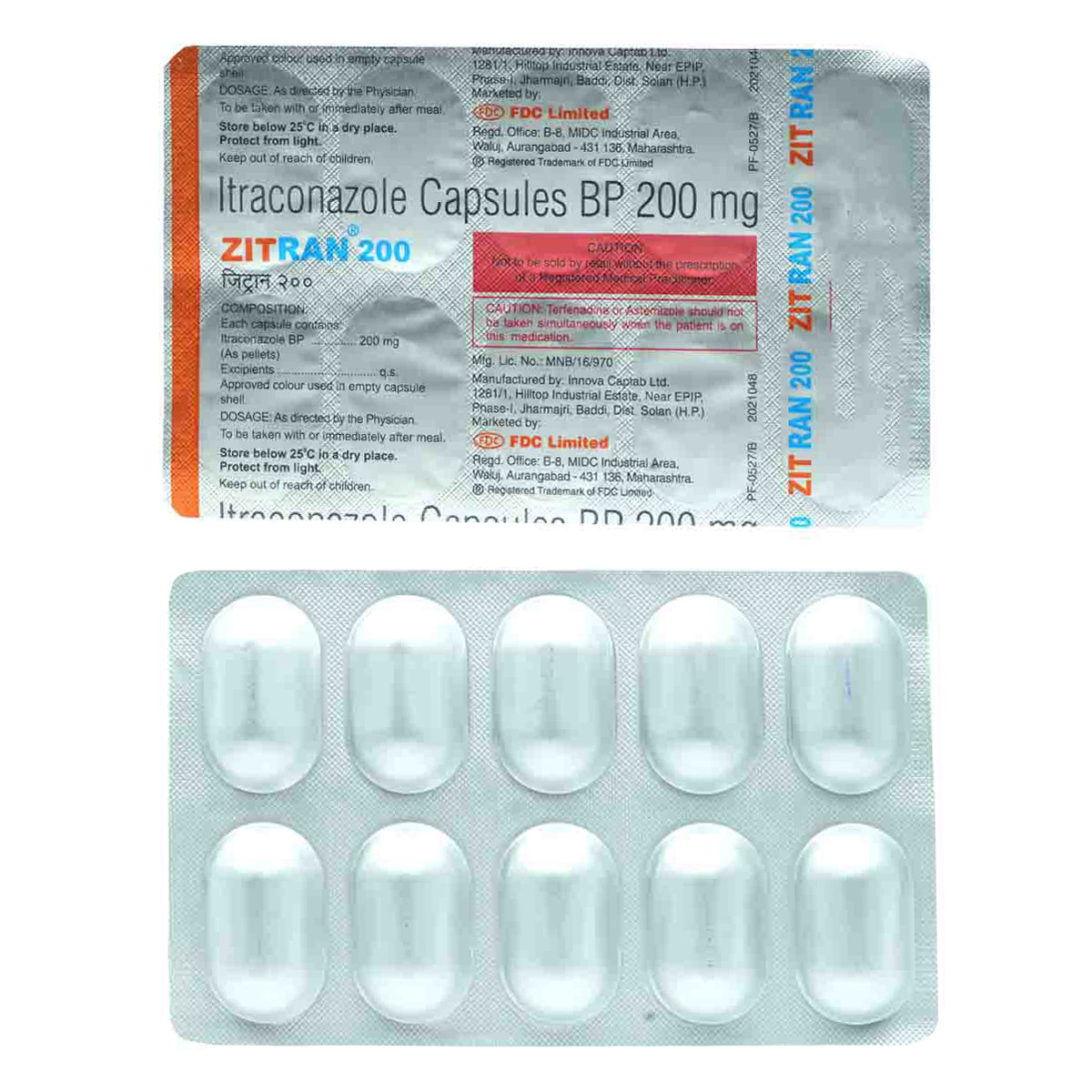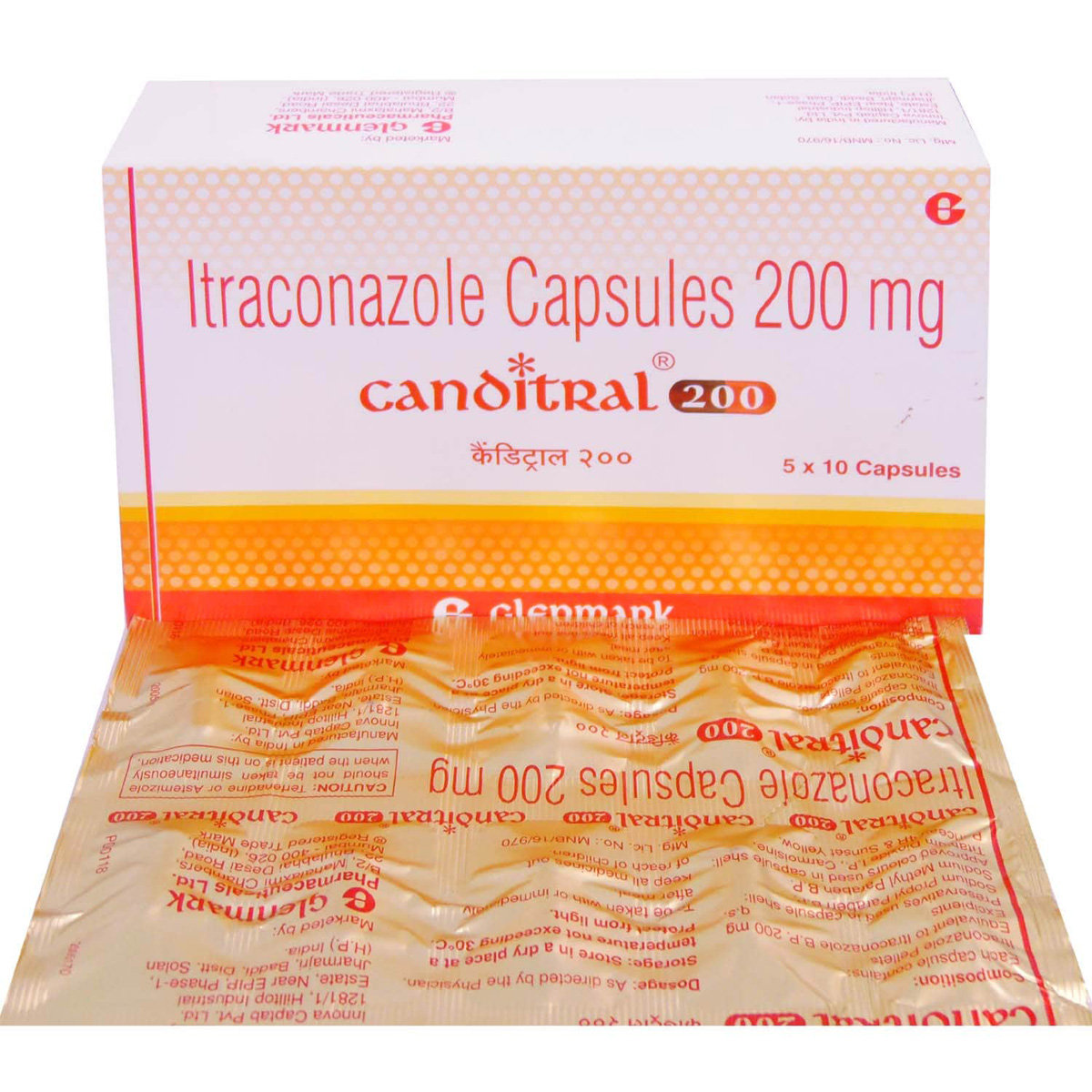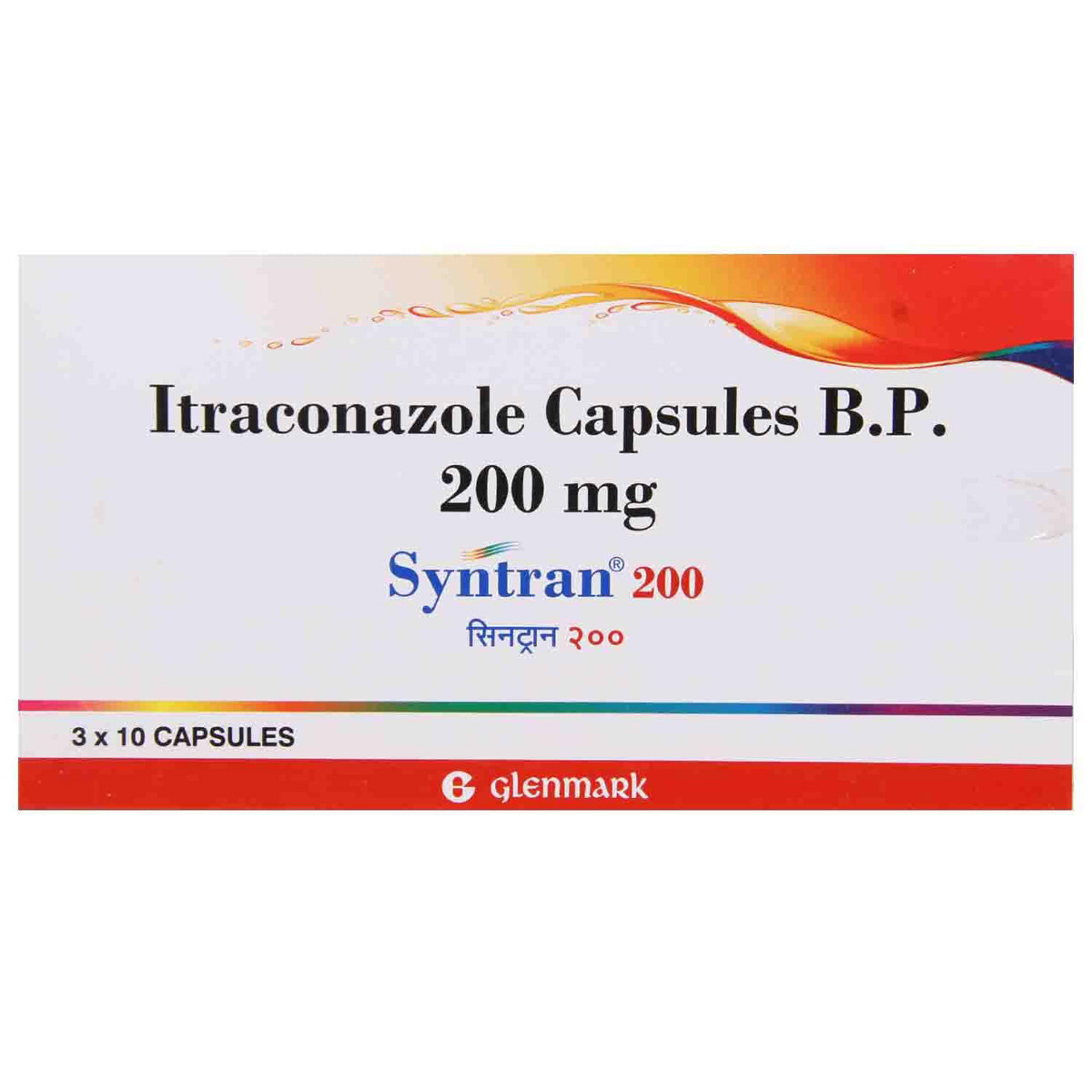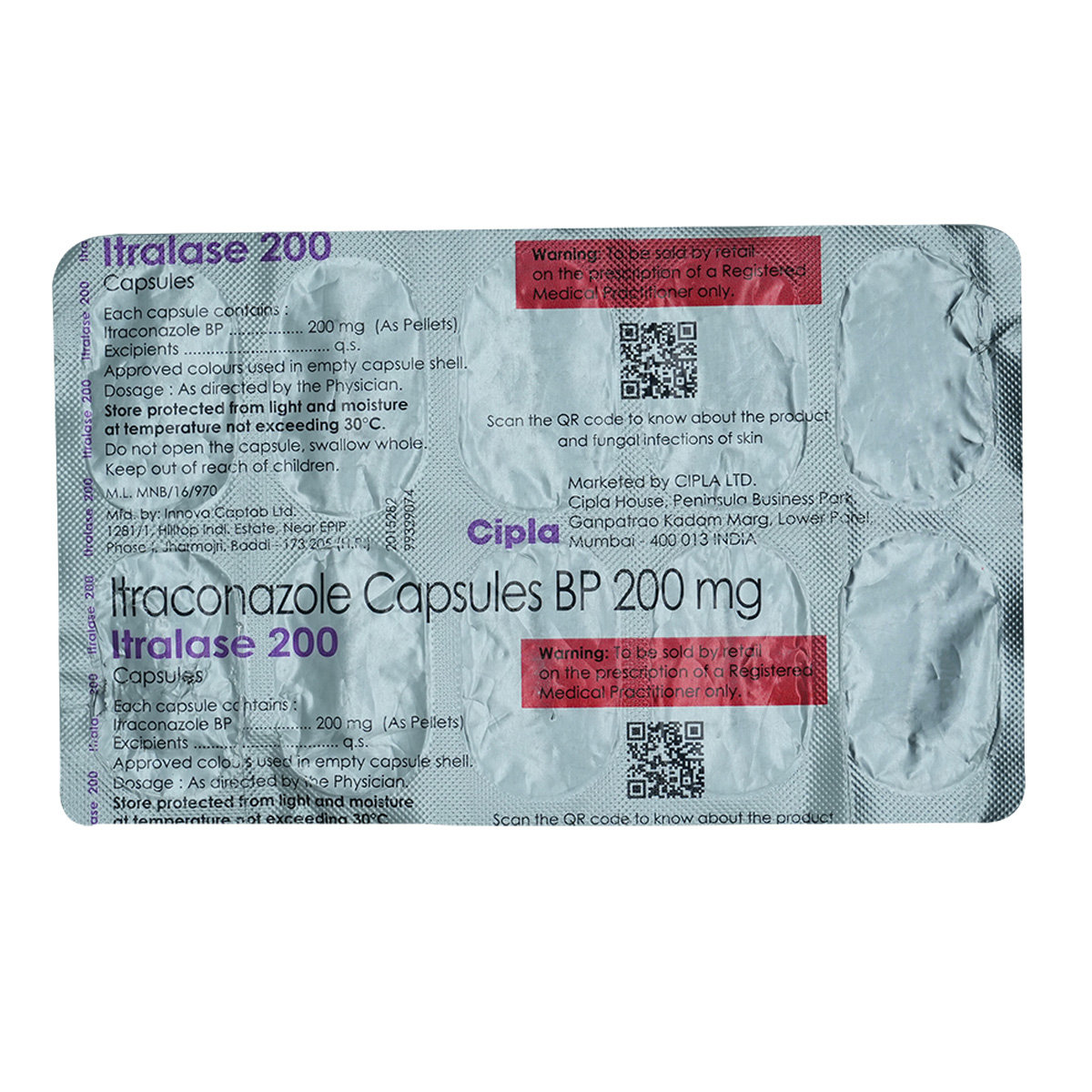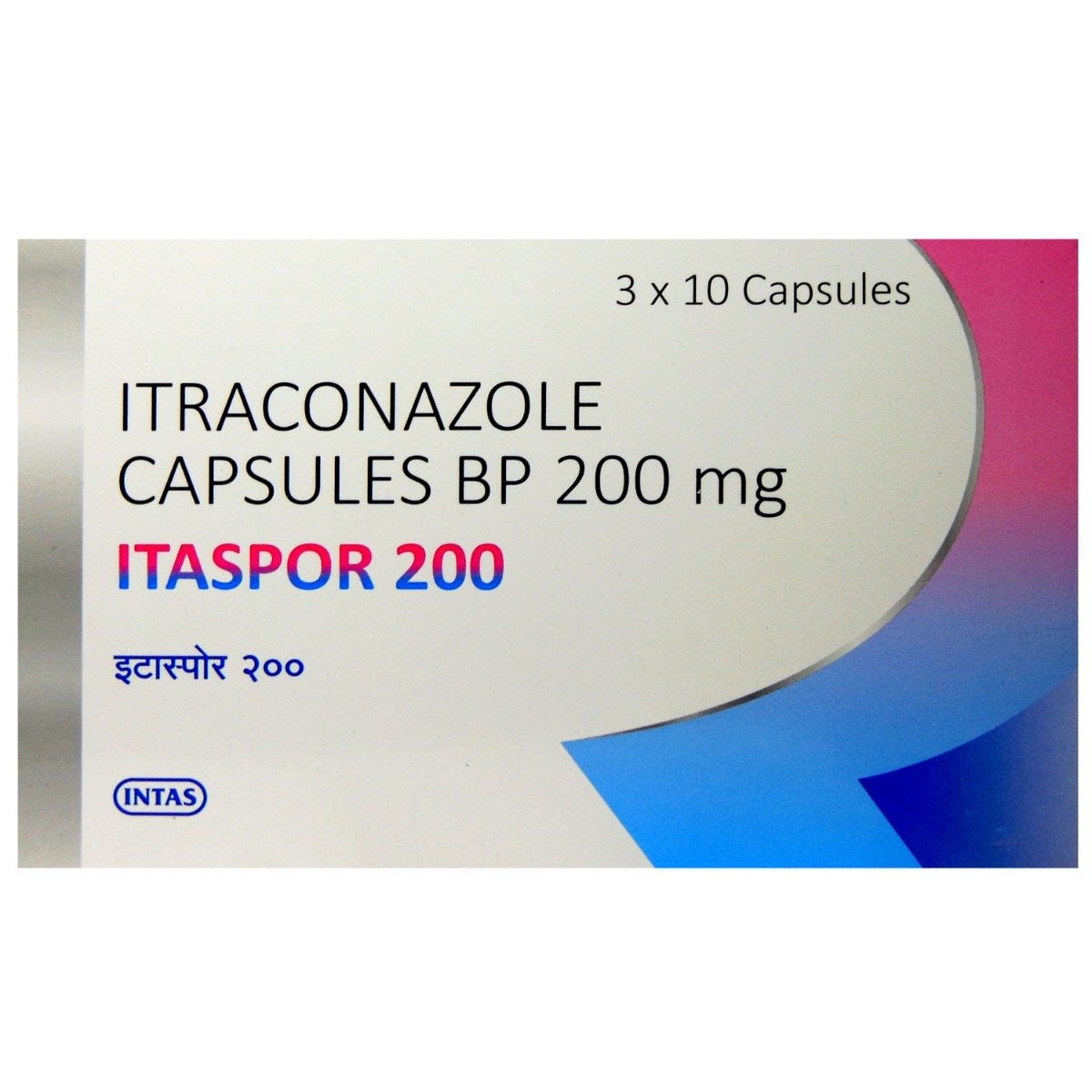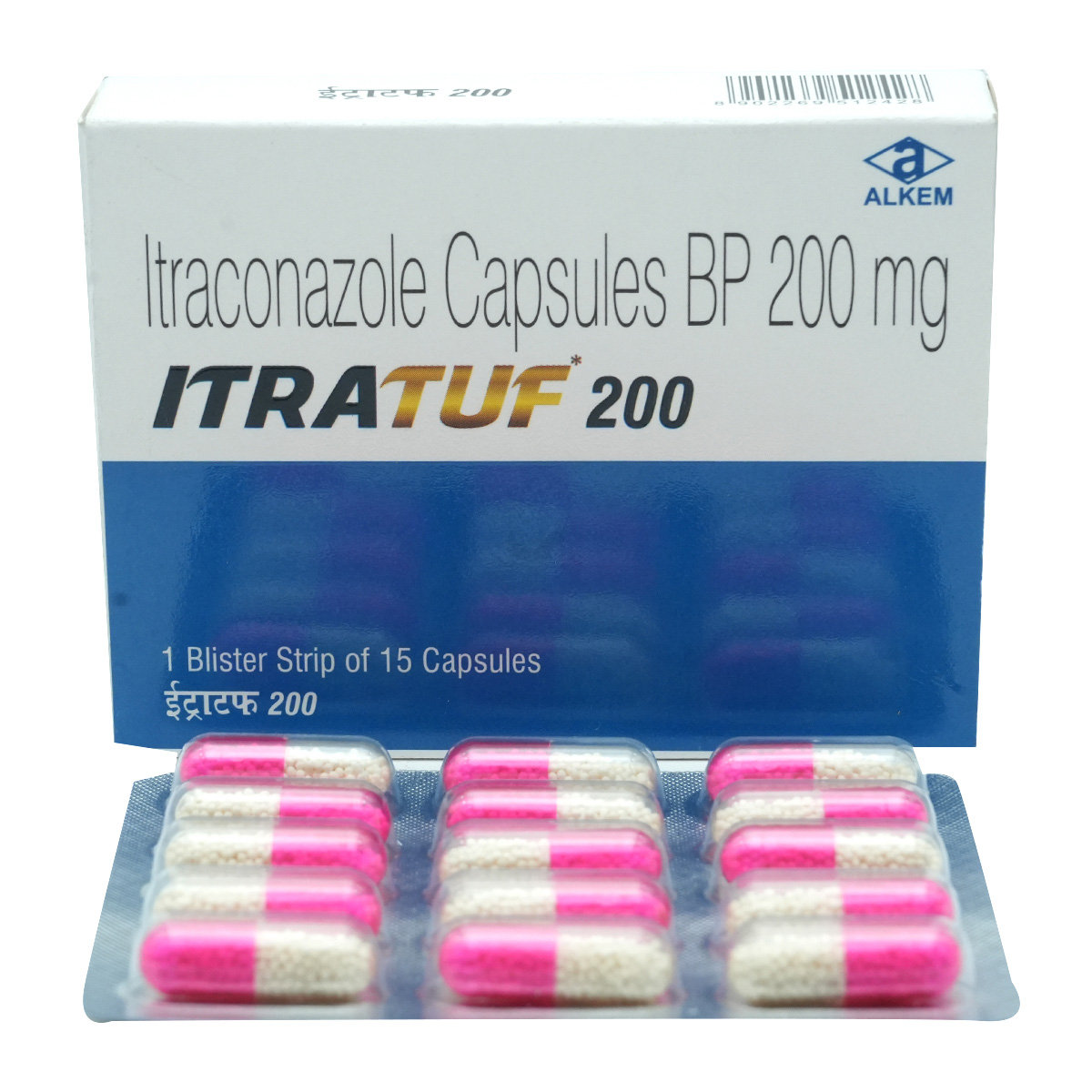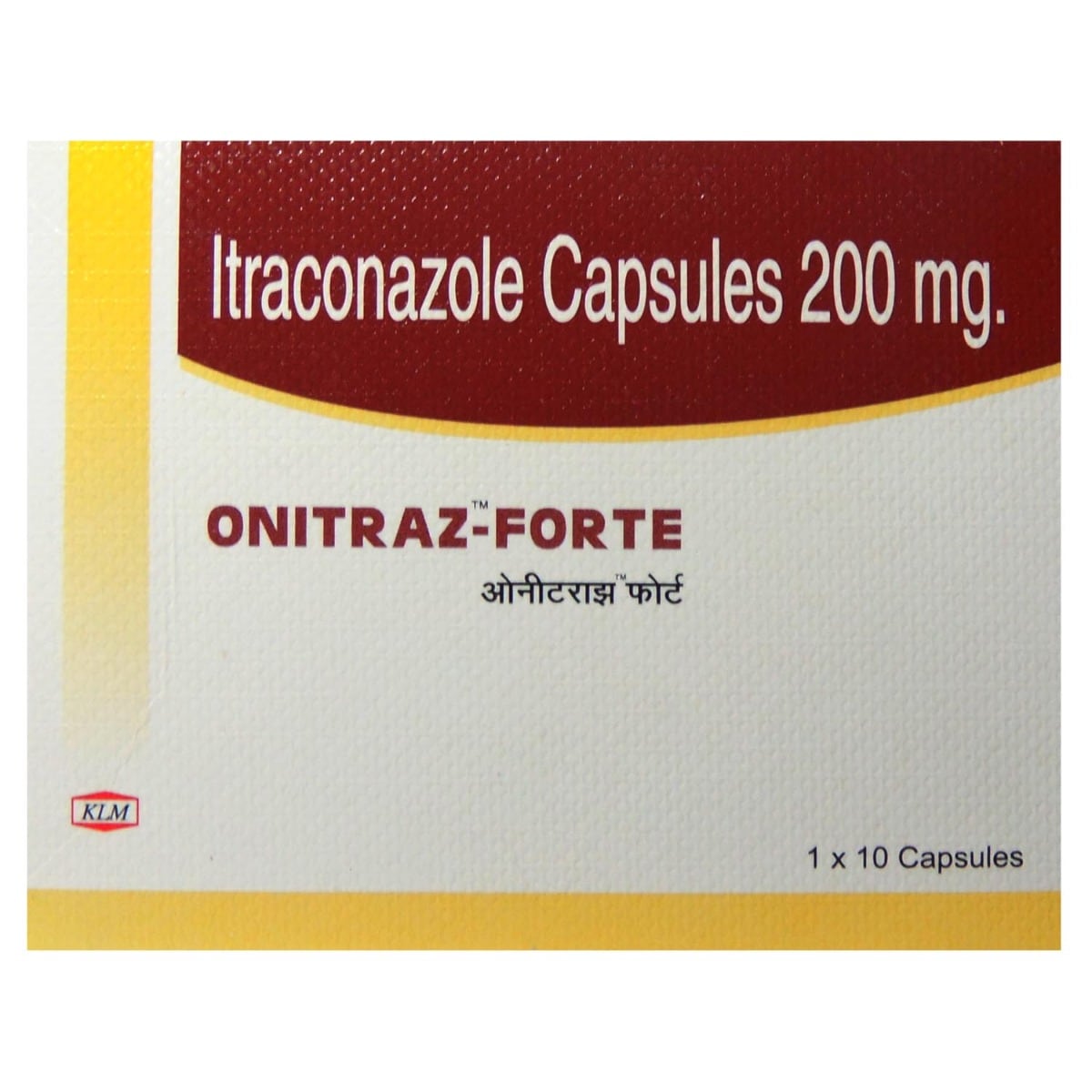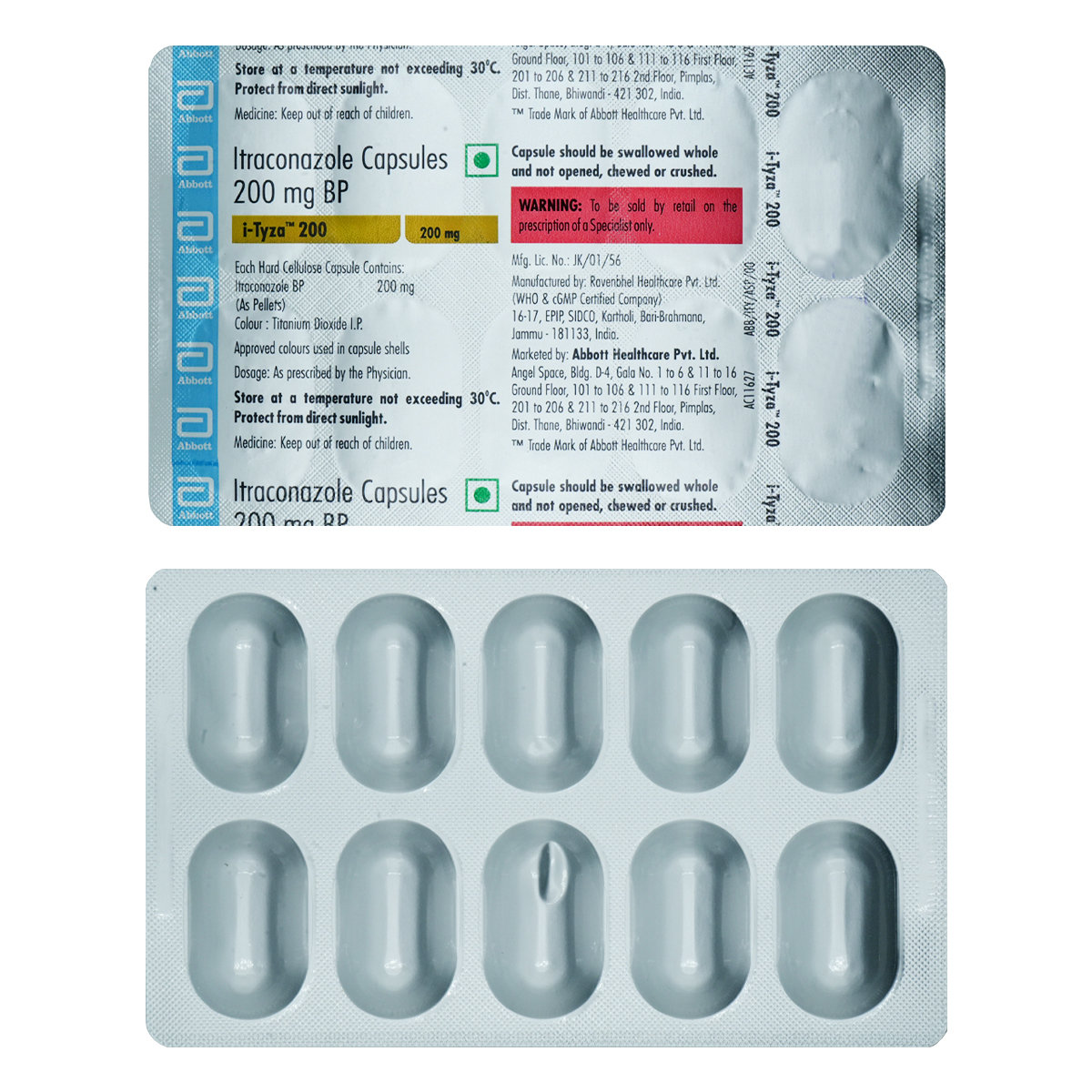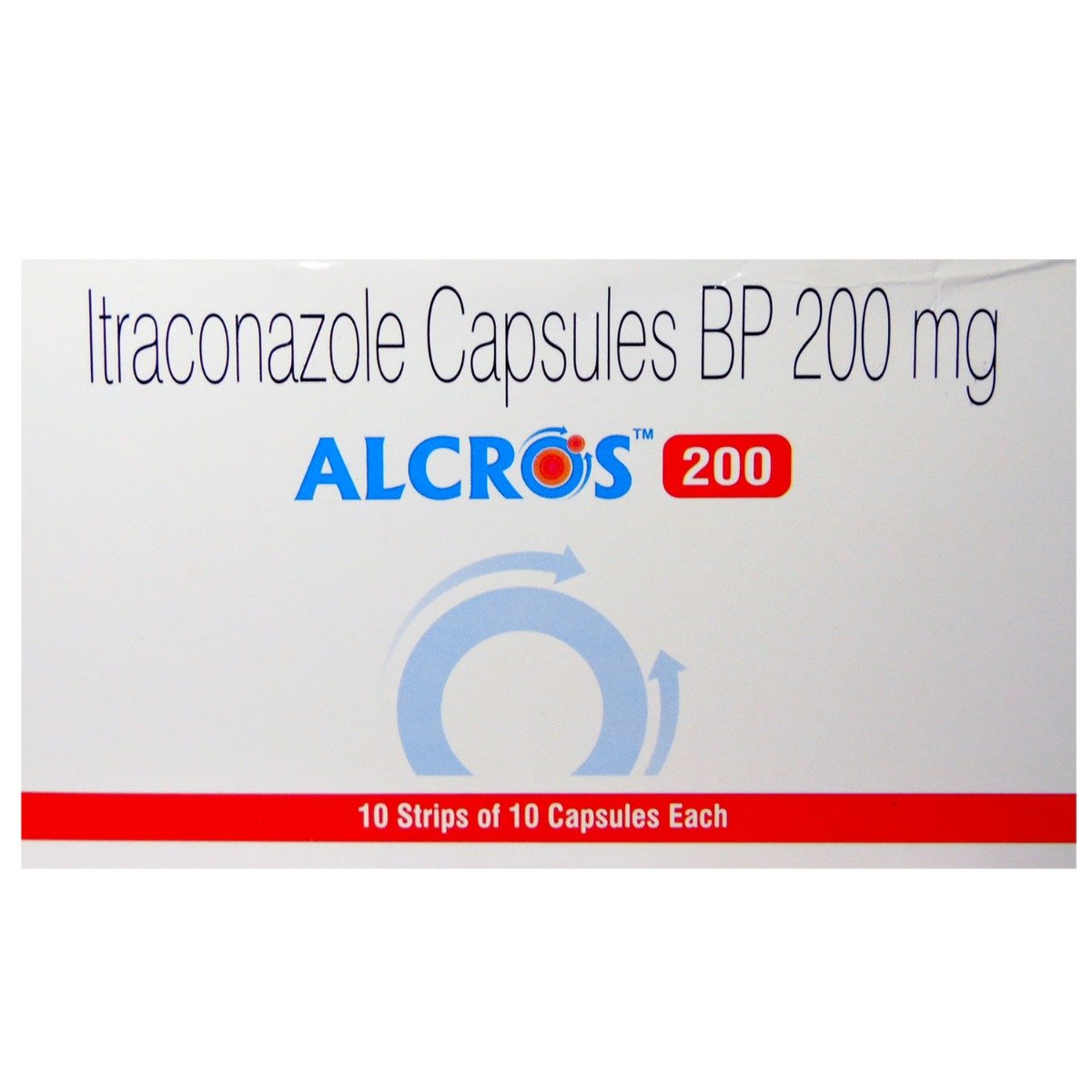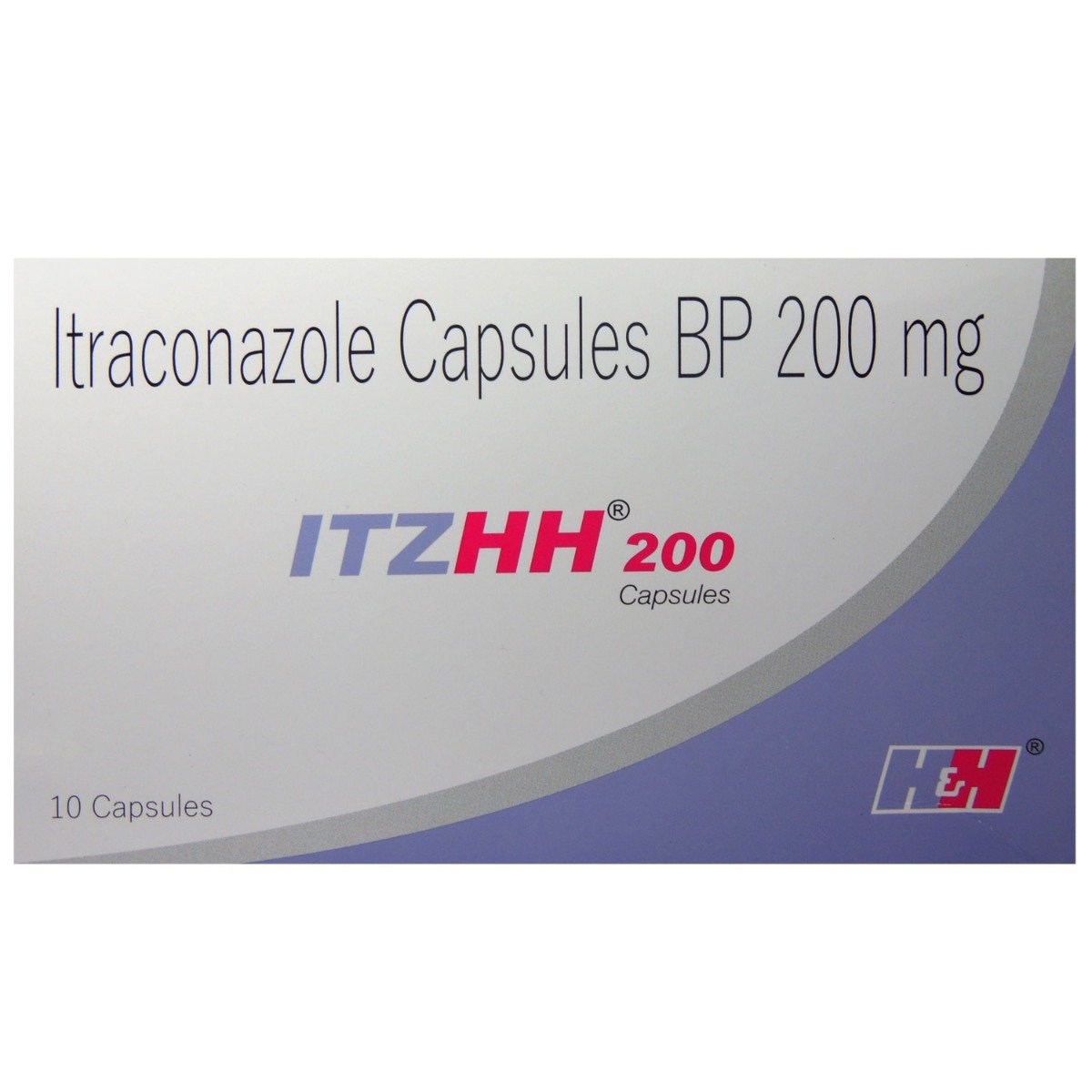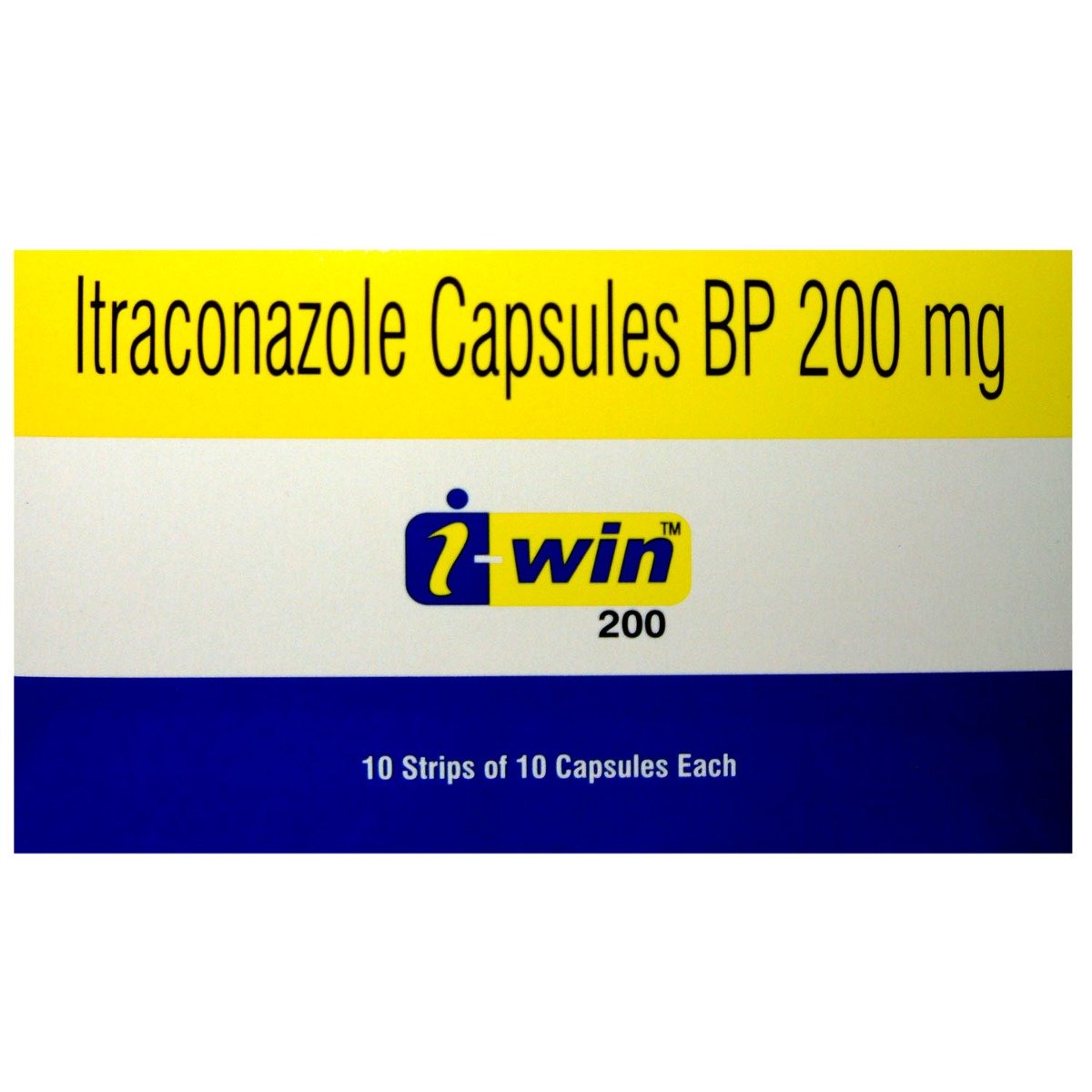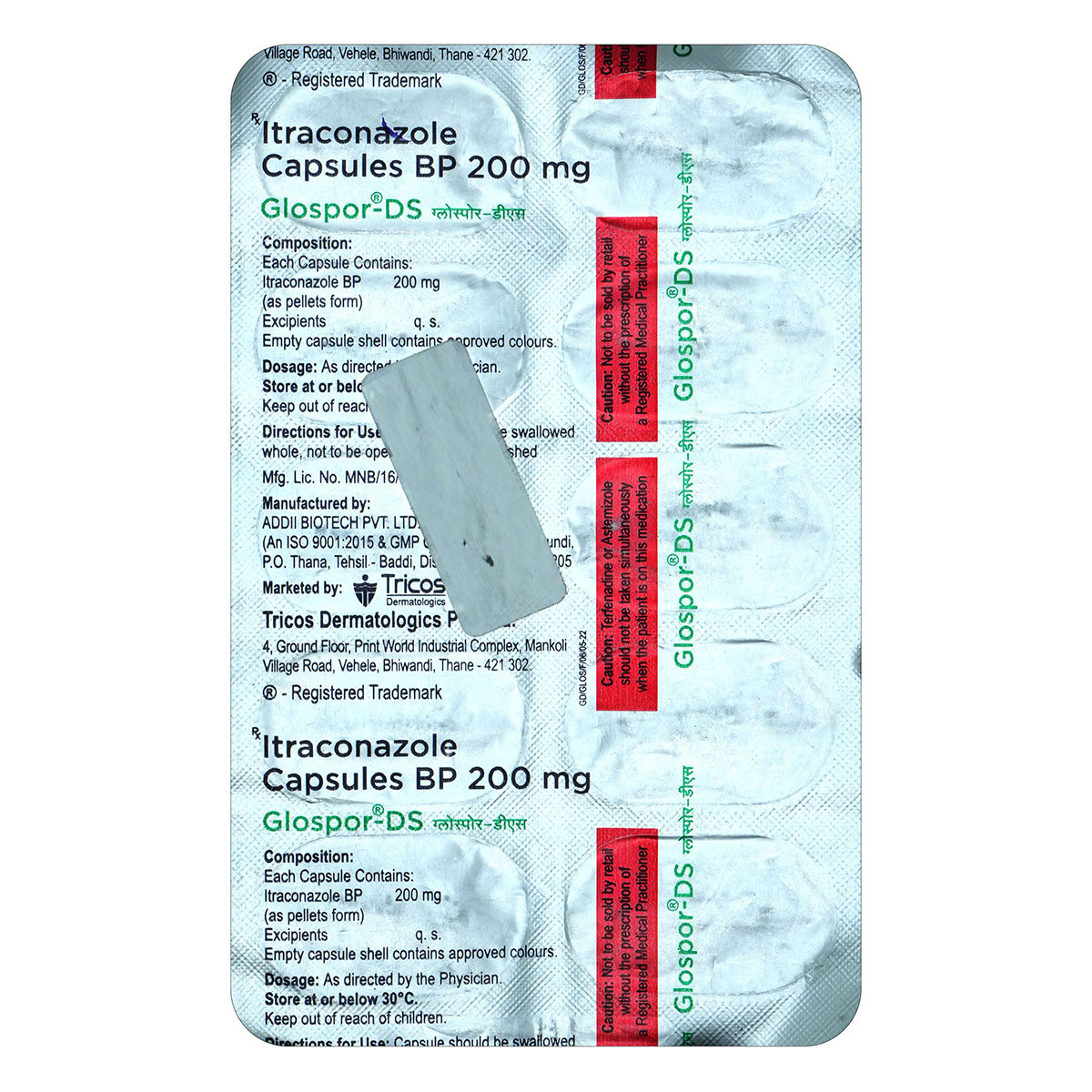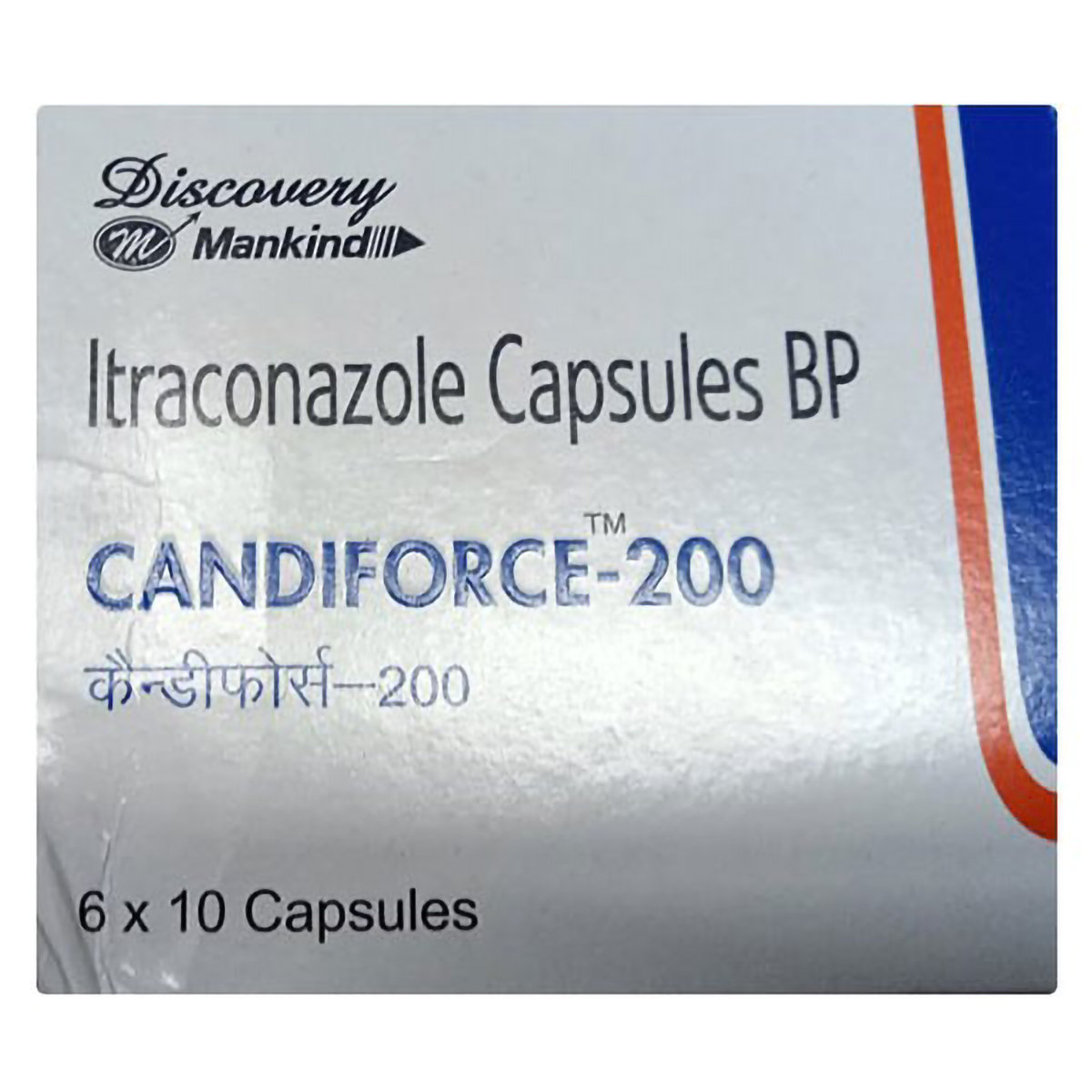Lecinate-200Mg Capsule 10'S
MRP ₹307
(Inclusive of all Taxes)
₹46.0 Cashback (15%)
Provide Delivery Location
Online payment accepted
 Prescription drug
Prescription drugWhats That
Composition :
Manufacturer/Marketer :
Consume Type :
Expires on or after :
Return Policy :
About Lecinate-200Mg Capsule
Lecinate-200Mg Capsule belongs to a class of drugs called antifungals used to treat fungal infections of the mouth, throat, toenails, fingernails or lungs. Fungal infection is a disease in which a fungus attacks the tissue and causes infection. Fungal infections may be contagious (spread from one person to another).
Lecinate-200Mg Capsule contains Itraconazole, an antifungal that works by inhibiting the production of ergosterol (a main component of cell membranes of fungi). Thereby, weakens and damages the fungal cell membranes that are essential for their survival as they prevent the entry of unwanted substances into the cells and stop the leakage of cell contents. Thus, causes the main components of fungal cells to leak out and kill fungi and clear the fungal infection.
Take Lecinate-200Mg Capsule as prescribed. Your doctor will advise you on how often you take Lecinate-200Mg Capsule based on your medical condition. Some people may experience nausea, headache, diarrhoea, tiredness, cough, cold, throat pain, back pain and stomach pain. Most of these side effects of Lecinate-200Mg Capsule do not require medical attention and gradually resolve over time. However, if the side effects persist or worsen, please consult your doctor.
If you are known to be allergic to Lecinate-200Mg Capsule or any other medicines, please tell your doctor. Lecinate-200Mg Capsule is a pregnancy category C drug and may cause harm to the unborn baby. However, if you are pregnant, planning for pregnancy or a nursing mother, it is advised to consult a doctor before using Lecinate-200Mg Capsule . Do not take Lecinate-200Mg Capsule if you have or had heart failure as it may cause severe life-threatening adverse effects. If you have kidney, liver, heart or lung problems, inform your doctor before taking Lecinate-200Mg Capsule . Avoid taking fentanyl (a strong opioid narcotic medicine) with Lecinate-200Mg Capsule as it may cause severe breathing problems and can even lead to death. If you experience numbness or tingling in your hands or feet, stop taking Lecinate-200Mg Capsule and consult your doctor immediately as they might be symptoms of nerve damage.
Uses of Lecinate-200Mg Capsule
Directions for Use
Key Benefits
Lecinate-200Mg Capsule is an antifungal used to treat fungal infections of the mouth, throat, toenails, fingernails or lungs. The fungal cell membranes are essential for their survival as they prevent the entry of unwanted substances into the cells and stops the leakage of cell contents. Lecinate-200Mg Capsule inhibits the production of ergosterol (a main component of cell membranes of fungi). Thereby, weakens and damages the fungal cell membranes causing the main components of fungal cells to leak out. Thus, kills fungi and clears the fungal infection.
Storage
- Inform your doctor about dry mouth symptoms. They may adjust your medication regimen or prescribe additional medications to manage symptoms.
- Drink plenty of water throughout the day to help keep your mouth moist and alleviate dry mouth symptoms.
- Chew sugar-free gum or candies to increase saliva production and keep your mouth moisturized.
- Use saliva substitutes, such as mouthwashes or sprays, only if your doctor advises them to help moisturize your mouth and alleviate dry mouth symptoms.
- Avoid consuming smoking, alcohol, spicy or acidic foods, and other irritants that may aggravate dry mouth symptoms.
- Schedule regular dental check-ups to keep track of your oral health and handle any dry mouth issues as they arise.
- Inform your doctor immediately if you experience a fever after starting a new medication.
- Your doctor may adjust your medication regimen or dosage as needed to minimize fever symptoms.
- Monitor your body temperature to monitor fever progression.
- Drink plenty of fluids, such as water or electrolyte-rich beverages, to help your body regulate temperature.
- Get plenty of rest and engage in relaxation techniques, such as deep breathing or meditation, to help manage fever symptoms.
- Under the guidance of your doctor, consider taking medication, such as acetaminophen or ibuprofen, to help reduce fever.
- If your fever is extremely high (over 103°F), or if you experience severe symptoms such as confusion, seizures, or difficulty breathing, seek immediate medical attention.
- Eat potassium-rich foods like avocados, bananas, spinach, and potatoes.
- Stay hydrated by drinking plenty of water.
- Exercise regularly and maintain healthy weight.
- Manage stress.
- Prioritize 7-9 hours of sleep each night to help your body and mind recharge.
- Avoid smoking and limit intake of caffeine.
- Practice stress-reducing activities like meditation, yoga, or deep breathing to help calm your mind and body.
- Avoid stimulants and illegal drugs.
- Call your doctor if it worsens.
Drug Warnings
If you are known to be allergic to Lecinate-200Mg Capsule or any other medicines, please tell your doctor. Lecinate-200Mg Capsule is a pregnancy category C drug and may cause harm to the unborn baby. However, if you are pregnant, planning for pregnancy, or are a nursing mother, it is advised to consult a doctor before using Lecinate-200Mg Capsule . Avoid taking fentanyl (a strong opioid pain killer narcotic medicine) with Lecinate-200Mg Capsule , as it may cause severe breathing problems and can even lead to death. Do not take Lecinate-200Mg Capsule if you had heart failure as it may cause severe life-threatening adverse effects. If you experience a yellow colour change of your eyes or skin, dark coloured urine, stomach pain, pale stools, loss of appetite, unusual tiredness, vomiting or nausea, stop taking Lecinate-200Mg Capsule and consult a doctor immediately as they might be symptoms of liver failure. If you have kidney, liver, heart, or lung problems, inform your doctor before taking Lecinate-200Mg Capsule .
Drug-Drug Interactions
Drug-Drug Interactions
Login/Sign Up
The blood levels and effects of Isavuconazole may be significantly enhanced by taking Lecinate-200Mg Capsule along with it.
How to manage the interaction:
Co-administration of Isavuconazole and Lecinate-200Mg Capsule can lead to an interaction, it can be taken if advised by a doctor. However, if you experience any symptoms like nausea, vomiting, or diarrhoea, consult a doctor immediately. Do not stop using any medications without a doctor's advice.
The blood levels and effects of ticagrelor may be greatly increased when combined with Lecinate-200Mg Capsule.
How to manage the interaction:
Lecinate-200Mg Capsule and ticagrelor may interact, however if prescribed by a physician, they can be used together. While receiving therapy, you should consult a doctor if you develop any unusual bleeding or bruising, swelling, vomiting, blood in your urine or stools, headache, dizziness, or weakness. Without consulting a doctor, never stop taking any medication.
Co-administration of Methylergometrine and Lecinate-200Mg Capsule may increase the blood levels of Methylergometrine.
How to manage the interaction:
Methylergometrine and Lecinate-200Mg Capsule may interact, but if prescribed by a doctor, they can be used together. Do not discontinue any medications without first consulting your doctor.
Simvastatin's blood levels and effects may be greatly increased when combined with Lecinate-200Mg Capsule.
How to manage the interaction:
Simvastatin and Lecinate-200Mg Capsule may interact, but if prescribed by a doctor, they can be used together. Consult a doctor if you have side effects such unexplained pain in the muscles or tenderness, muscle weakness, fever or flu-like symptoms, or dark urine. Without consulting a doctor, never stop taking any medication.
The blood levels and effects of felodipine may be considerably increased by taking Lecinate-200Mg Capsule together with felodipine.
How to manage the interaction:
Although there is a possible interaction between felodipine and Lecinate-200Mg Capsule, they can be taken if prescribed by a doctor. Consult a physician if you have an irregular heartbeat, Edema (accumulation of fluid in hands or legs), or abnormally low blood pressure. Without first consulting a doctor, never stop taking medicines.
The blood levels and effects of ergotamine may be greatly increased when combined with Lecinate-200Mg Capsule.
How to manage the interaction:
Ergotamine and Lecinate-200Mg Capsule may interact, but if prescribed by a doctor, they can be used together. Consult a doctor if you experience a severe headache, shortness of breath, blurred vision, confusion, nausea, vomiting, numbness or tingling, muscle pain or weakness, blue or purple discoloration of the fingers or toes, pale or cold skin, or chest pain or tightness. Without first consulting your doctor, never stop taking medicines.
Co-administration of Tolvaptan and Lecinate-200Mg Capsule may significantly raise Tolvaptan blood levels and effects.
How to manage the interaction:
There may be a possibility of interaction between Tolvaptan and Lecinate-200Mg Capsule, but it can be taken if prescribed by a doctor. If you notice any of these signs -difficulty swallowing, trouble speaking, muscle weakness, trouble controlling body movements, confusion, mood changes, seizures, call a doctor right away. Do not stop using any medications without a doctor's advice.
Co-administration of Triazolam and Lecinate-200Mg Capsule may significantly increase the levels of Triazolam.
How to manage the interaction:
Although combining Triazolam and Lecinate-200Mg Capsule may possibly lead to an interaction, they can be taken if prescribed by a doctor. Consult a doctor if you get extremely drowsy and your breathing becomes slow. Without consulting a doctor, never stop taking any medication.
Alprazolam's blood levels may be significantly raised when combined with Lecinate-200Mg Capsule.
How to manage the interaction:
Although combining Alprazolam and Lecinate-200Mg Capsule may lead to an interaction, they can be taken if prescribed by a doctor. Consult a doctor if you get extremely drowsy and your breathing becomes slow. Without consulting a doctor, never stop taking any medication.
The blood levels and effects of solifenacin may be greatly increased when combined with Lecinate-200Mg Capsule.
How to manage the interaction:
Solifenacin and Lecinate-200Mg Capsule may interact, however, if recommended by a physician, they are safe to consume. Consult a doctor if you feel sleepy, or uneasy, have an irregular heartbeat, have blurry vision, have trouble urinating, have a dry mouth, a headache, have digestive problems, or have constipation. Without consulting a doctor, never stop taking any medication.
Drug-Food Interactions
Drug-Food Interactions
Login/Sign Up
Grapefruit Juice, Grapefruit
How to manage the interaction:
Consuming Grapefruit, Grapefruit juice with Lecinate-200Mg Capsule may impair the absorption of Lecinate-200Mg Capsule, resulting in decreased antifungal effects. Avoid consuming Grapefruit and grapefruit juice with Lecinate-200Mg Capsule.
Diet & Lifestyle Advise
- Regularly change your socks and wash your feet. Avoid shoes that make your feet sweaty and hot.
- In wet places such as changing rooms and gym showers, don’t walk on barefoot to prevent fungal infections.
- Do not scratch the affected area of skin as it can spread the infection to other body parts.
- Avoid sharing towels, combs, bedsheets, shoes or socks with others.
- Wash your bed sheets and towels regularly.
Side Effects of Lecinate-200Mg Capsule
- Nausea
- Headache
- Diarrhoea
- Tiredness
- Cough
- Cold
- Throat pain
- Back pain
- Stomach pain
Habit Forming
Therapeutic Class
All Substitutes & Brand Comparisons
RX
Zitran 200 mg Capsule 10's
FDC Ltd
₹168
(₹15.12 per unit)
45% CHEAPERRX
Canditral 200 Capsule 10's
Glenmark Pharmaceuticals Ltd
₹232
(₹20.88 per unit)
24% CHEAPERRX
Syntran 200 Capsule 10's
Glenmark Pharmaceuticals Ltd
₹232
(₹20.88 per unit)
24% CHEAPER
Author Details
We provide you with authentic, trustworthy and relevant information
Drug-Diseases Interactions
Drug-Diseases Interactions
Login/Sign Up
FAQs
Drug-Drug Interactions Checker List
- ESOMEPRAZOLE
- OMEPRAZOLE
- PANTOPRAZOLE
- FLUTICASONE
- BUDESONIDE
- HYDROCODONE
- WARFARIN
- SIMVASTATIN
- TERFENADINE
- ALPRAZOLAM
Special Advise
- Regular blood tests are recommended before and while taking Lecinate-200Mg Capsule to monitor liver functioning especially if you have any liver problems.
Disease/Condition Glossary
Fungal infection: It is a skin disease in which a fungus attacks the tissue and cause infection. It may be contagious (spread from one person to another). The symptoms of a fungal infection include blisters, itching, redness, scaling and swelling of the skin. Yeast infection is caused by a type of fungus called candida and commonly occurs in moist and warm areas of the body. It is not contagious. It may cause infections in the mouth (oral thrush), vagina, nails, groin or armpits.

Have a query?
Alcohol
Safe if prescribed
Avoid consumption of alcohol with Lecinate-200Mg Capsule as it may increase the risk of liver problems and other adverse effects.
Pregnancy
Consult your doctor
Lecinate-200Mg Capsule is category C pregnancy drug and is unsafe for pregnant women as it may cause harm to the unborn baby. Therefore, inform your doctor if you are pregnant or planning for pregnancy before taking Lecinate-200Mg Capsule .
Breast Feeding
Consult your doctor
Lecinate-200Mg Capsule is excreted in human milk and may harm the baby. Therefore, Lecinate-200Mg Capsule is given to breastfeeding mothers only if doctor thinks benefits are greater than risks.
Driving
Safe if prescribed
Lecinate-200Mg Capsule may cause dizziness, hearing loss, double or blurred vision in some people. Therefore, drive only if you alert after taking Lecinate-200Mg Capsule .
Liver
Consult your doctor
Take Lecinate-200Mg Capsule with caution, especially if you have a history of Liver diseases/conditions. The dose may be adjusted by your doctor as required.
Kidney
Consult your doctor
Take Lecinate-200Mg Capsule with caution, especially if you have a history of Liver diseases/conditions. The dose may be adjusted by your doctor as required.
Children
Safe if prescribed
Lecinate-200Mg Capsule is not recommended for children below 12 years as the safety and effectiveness were not established.




